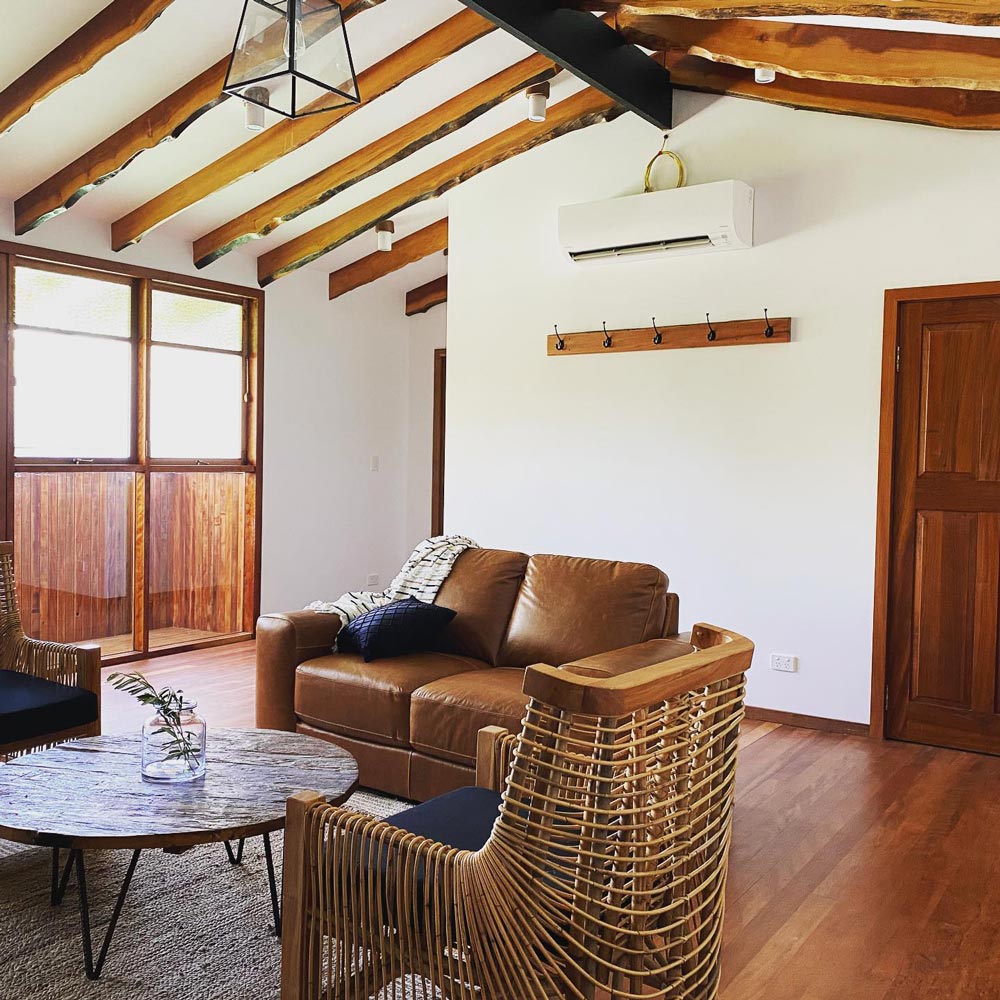When most people think of air conditioning, their minds go straight to comfort—cool air on a hot summer’s day or toasty warmth in winter. But what’s often overlooked is the crucial role your air conditioning system plays in determining the quality of the air you breathe indoors. Whether you’re at home or in the office, your AC unit isn’t just controlling temperature—it’s also influencing the cleanliness, moisture, and freshness of your indoor environment.
This is especially important for families with asthma, allergy sufferers, or anyone who simply wants to create a healthier living or working space. Let’s explore how air conditioning impacts indoor air quality and what you can do to ensure it supports your well-being rather than compromising it.

Air conditioning systems operate by circulating and filtering air throughout your home or business. That means any particles floating in the air—dust, mould spores, smoke, pet dander—can either be filtered out or recirculated, depending on how well your system is maintained.
Well-maintained systems can significantly improve indoor air quality, but neglected ones may worsen it. Here’s what to be mindful of:
In short, your AC can be your first line of defence—or a source of indoor pollution.
One of the most vital components in your AC system is the air filter. These filters trap dust, pollen, and microscopic contaminants, preventing them from circulating back into your home.
However, not all filters are created equal:
To maintain their effectiveness, filters need to be cleaned or replaced regularly. A clogged or old filter doesn’t just reduce air quality—it also reduces your system’s efficiency.
Yes—especially in environments with high humidity or poor maintenance. A dirty air conditioner can become a breeding ground for mould, mildew, and bacteria. Once airborne, these can cause allergic reactions or exacerbate asthma symptoms.
Health issues linked to poor indoor air quality include:
Professional servicing helps prevent this by cleaning out potential allergens and ensuring that your system is not contributing to respiratory distress.
Regular maintenance of your air conditioning system is about more than avoiding breakdowns—it’s about ensuring healthy airflow. A well-maintained system filters better, ventilates more effectively and stays free of biological contaminants.
Key benefits of routine servicing include:
We recommend servicing your air conditioning unit at least once a year—twice if you have pets, allergies, or live in a high-dust area.
Humidity and condensation are natural by-products of air conditioning. But when moisture isn’t drained properly, it can accumulate inside the unit or ductwork—creating ideal conditions for mould growth.
How mould affects indoor air:
Air conditioning services can check your unit’s drainage systems and eliminate early mould growth before it becomes a widespread issue.
Effective air conditioning isn’t just about temperature—it’s about fresh air exchange. A system that moves air efficiently helps remove stale air, odours, and carbon dioxide, bringing in clean, conditioned air to replace it.
Signs of poor ventilation include:
To improve ventilation:
Not all systems are equally suited to improving indoor air quality. Choosing the right system involves more than size or cooling capacity—it’s also about filtration, ventilation, and humidity control.
Consider these features when upgrading or installing a new unit:
Always consult with a professional technician to assess which system best suits your property and air quality needs.
Imagine walking into your home and breathing in clean, fresh air—free from dust, mould and allergens. This isn’t just a luxury—it’s an achievable outcome with the right AC system and care plan. Whether you’re managing respiratory health concerns or simply want to create a more pleasant environment, professional servicing is the key to keeping your indoor air safe and clean.
To get there:
At Thermal Air Conditioning Solutions, we’re more than just air conditioning installers—we’re dedicated to helping you create a safer, healthier indoor environment. Our team offers expert servicing, air conditioning installations and advanced filtration systems to improve indoor air quality across Queensland homes and businesses.
Ready to upgrade your comfort and protect your health? Give us a call or get in touch via our contact page to book a consultation or service today. Whether it’s time for your next AC maintenance or you’re planning a system upgrade, we’re here to help you breathe easier—every day.
Contact us today on (07) 5524 7509 (Tweed Heads) or (02) 6638 0708 (Byron Bay) to get your project up and running.
Contractor’s License: 283 506C
QBCC License: 1310157
ARCTICK License: AU38131
| Monday | 8:30am – 4:30pm |
| Tuesday | 8:30am – 4:30pm |
| Wednesday | 8:30am – 4:30pm |
| Thursday | 8:30am – 4:30pm |
| Friday | 8:30am – 4:30pm |
| Saturday | Closed |
| Sunday | Closed |